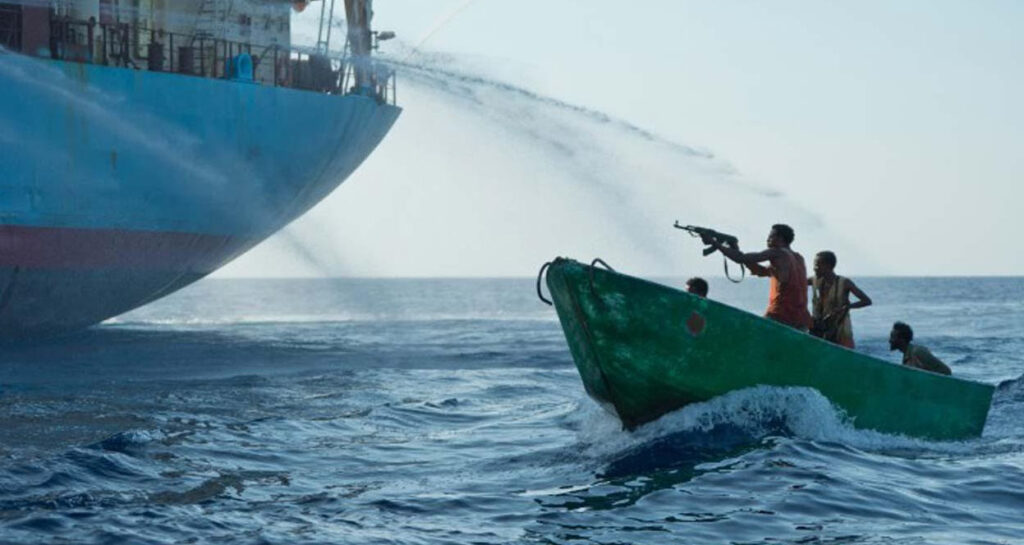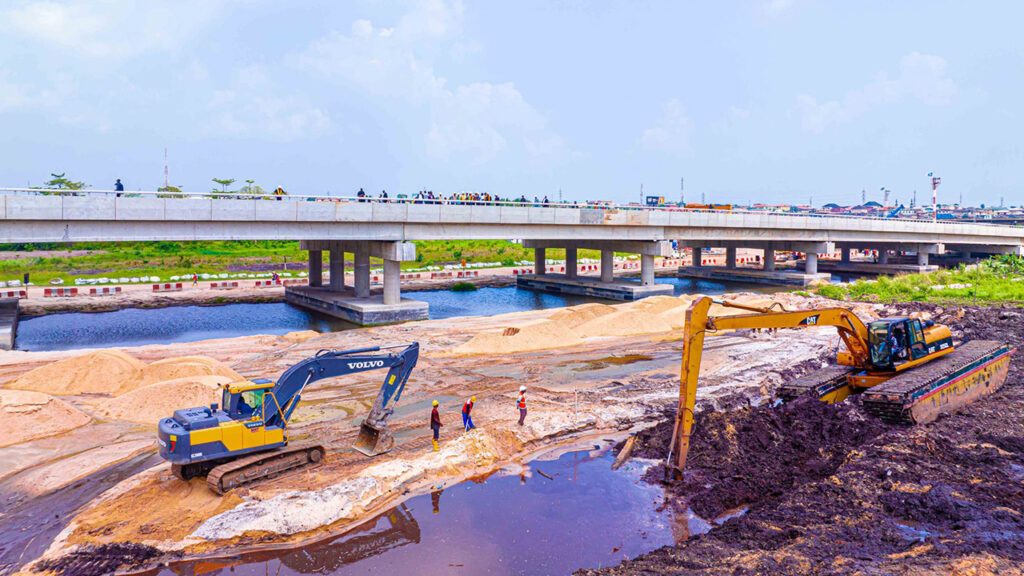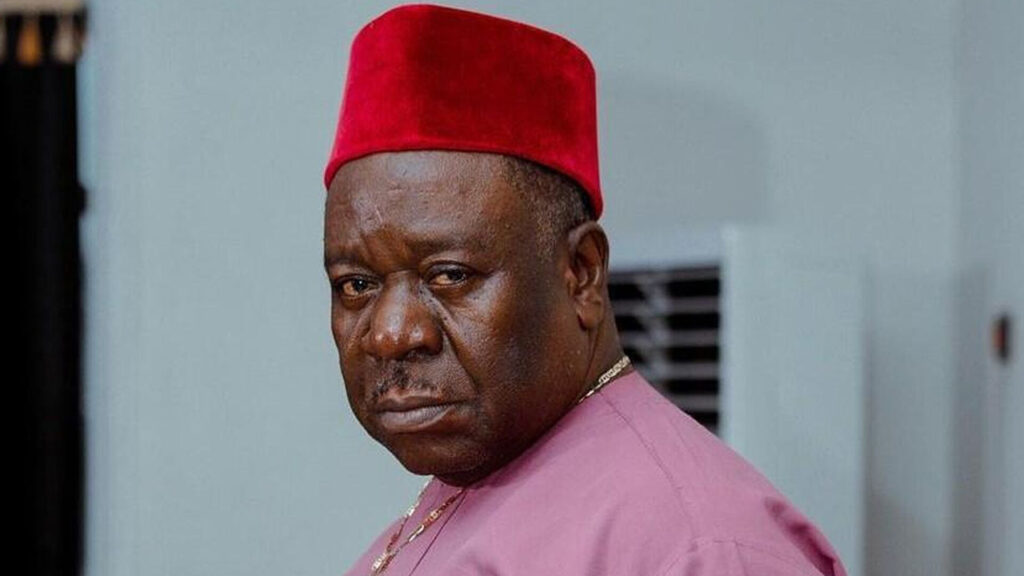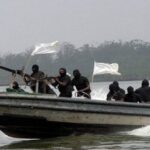
Initial gains notwithstanding, the recent spike in the frequency of pirate and armed robbery attacks on the Gulf of Guinea channel is distressing. Stakeholders said the dangerous trend now warrants coastal States returning to a consensus on strengthening the waterway security architecture, ADAKU ONYENUCHEYA reports.
The resurgence of piracy and armed robbery in the Gulf of Guinea (GoG) waters has again raised global concerns despite measures put in place to secure the region, which led to a decline in incidence between 2021 and 2022.
The ICC International Maritime Bureau (IMB) mid-year report released recently showed that GoG witnessed an alarming surge in maritime incidents between the first and second quarters of the year.
According to the report, 65 incidents of piracy and armed robbery against vessels were recorded in the first half, against 58 incidents for the same period in 2022.
IMB noted that perpetrators successfully boarded 90 per cent of targeted vessels, just as violence towards crew continued with 36 taken hostage, 14 kidnapped, three threatened, two injured and one assaulted.
Recall that IMB, United Nations (UN) and African Union (AU) had continuously warned and called for the full operationalisation of maritime security architecture in the region as laid out in the Yaoundé Code of Conduct in 2013 after the announcement of a steady decline of piracy and armed robbery incidents in the region.
According to the United Nations Office on Drugs and Crime (UNODC), piracy threats cost the region over $1.9 billion in financial losses every year.
The declined incidence was attributed to the concerted efforts by national authorities and patrol of the African waters by regional and international partners via their deployment of naval assets.
Also, the Integrated National Security and Waterways Protection Infrastructure called the Deep Blue Project by the Nigerian government, contributed to the reduction of piracy incidence as affirmed by the international maritime communities.
However, the lack of security architecture for the full implementation of the Yaoundé Code of Conduct by the coastal States in the Gulf of Guinea as well as the lack of sustainable financing has jeopardised the positive feat in piracy reduction.
Recall that the Nigerian Maritime Administration and Safety Agency (NIMASA) had in January 2023, called on the Federal Government to review the modalities for raising the funding needed to sustain the safety of the nation’s waterway.

The Director General of NIMASA, Dr Bashi Jamoh, disclosed that after investing over $200 million in acquiring assets for the implementation of the deep blue project, it has become cost-effective to sustain.
Also, the Nigerian Navy blamed the lack of funding and low budgetary allocation for the non-maintenance of its over 250 Naval fleets for sustained operations at sea.
The Navy said about N6.9 billion is needed to maintain each of the naval fleet of ships every year.
Worried by the resurgence of piracy in the region, security experts have charged the Nigerian government to implement 100 per cent of the deep blue project capabilities to strongly secure its maritime domain and by extension the Gulf of Guinea.
The Managing Director of Beacon Consulting Limited, Dr Kabir Adamu, said implementation of maritime security architecture within countries in the region has been a major challenge to fully addressing the menace of insecurity on the waters.
Adamu, while commending Nigeria’s deep blue project and the feat in piracy reduction on its waters, said only about 30 per cent of the project capability has been implemented to date to achieve the success.
Adamu said if the deep blue project and its capabilities, especially the Falcon Eye of the Nigerian Navy, are implemented fully, Nigeria would fully take control of her maritime borders.
“I think the challenge has been that of implementation. The deep blue project can be scaled up as it has different capabilities with some of the assets within the Navy’s Falcon Eye, especially the over-horizon radar system and others, such as the special mission aircraft, helicopters, and vessels with communication systems as well as the unmanned aerial vehicles, patrol boats and several other components.
“It is a huge capability that can be scaled up and together with the diplomatic component, we will be able to manage the challenges within the Nigerian maritime borders and the Gulf of Guinea. It’s just an issue around collaboration, cooperation, and coordination between the different components, especially the ministries of defence and transportation,” he said.
Adamu cautioned that while Nigeria also depends on diplomatic measures as part of its approach to managing the security of its maritime borders, it should be wary of international politics of interest.
He said the results of the several military exercises conducted to enhance the capacities of the countries including Nigeria, were yet to be seen.
“Recently, China has come in and I think we should be very wary. The interests of these countries are not necessarily in our interest; we should take control of and determine our future.
“Yes, we can bring them in to support us, but at the end of the day, it should be in our interest. Remember that in international politics, the only permanent thing is interest, every other thing can change, and so we need to drive the initiative and only bring in these countries to support that initiative. Of course, negotiations and compromises would be made, but let it be determined by our interest,” he added.
A United States Certified Anti-Piracy and Maritime Security expert, Captain Alfred Oniye, said the baseline for insecurity on the nation’s waters is the unemployment of seafarers.
He said when the government trains people to be professionals and does not give them jobs, they turn to attack vessels.
Oniye said Nigeria must establish coast guards to engage the over 80 per cent unemployed seafarers in the country, saying that the current practice of deploying the Nigerian Navy as coast guards is undermining the nation’s Naval prowess.
“The establishment of the coast guard will go a long way for Nigeria. The government should use the unemployed seafarers because they already know the terrain to establish a coast guard so that they can complement the effort of the Navy’s defence. We need our navy to be more advanced. We should build our navy to be more of international standard, not just focus on coast guard job,” he said.
He also called for further persecution of the arrested pirates and sea-armed robbers to uncover the actual sponsors of the organised crimes in the region.
Meanwhile, the Director of IMB, Michael Howlett, lamented that the resurgence in reported incidents, including hostage situations and crew kidnappings in the Gulf of Guinea waters is disturbing.
He called for a continued, robust regional and international naval presence as a deterrent to address these crimes.
“We once again call on Gulf of Guinea regional authorities and the international community to refocus their attention on the region, to establish long-term, sustainable solutions that effectively address these crimes and protect the seafaring and fishing communities,” Howlett said.












